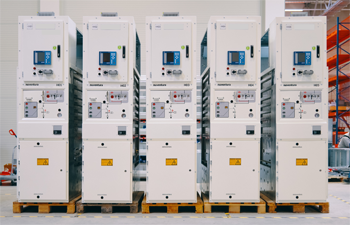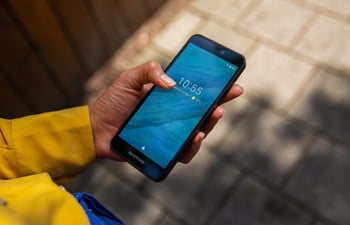The Dutch start-up aims to get more than 50,000 children to have a vegetarian lunch this year.
Amsterdam, 24 April 2024 - TommyTomato delivers vegetarian lunches to primary schools and it does so with a clear mission: to make all children vegetable-eaters for life. To make that happen, the young, mission-driven company has now raised €1.9 million growth money from impact financiers and business partners Stichting LifeTree Fund, DOEN Participaties and Social Impact Fonds Rotterdam. Among other things, this investment will allow the organisation to expand from the Amsterdam-Rotterdam area to other cities in the Netherlands and grow from start-up to scale-up.
A vegetarian lunch for the whole of the Netherlands
TommyTomato was founded in Haarlem in 2020 and in three years has become the market leader in school lunches. From hubs in Haarlem, Utrecht and The Hague, employees provide over 22,000 children with hot, vegetable-rich lunches every week. Since it began, TommyTomato has delivered more than 1.5 million lunches to primary schools, and last year the company grew by 600 per cent. They will use the growth capital raised to expand this year and open hubs in Eindhoven and Rotterdam. By 2025, they want to be able to supply all major cities in the Netherlands. To cope with this rapid growth, they are also investing in further automation and expanding the team.
A healthy school lunch is very normal in other European countries
In the Netherlands, 92 per cent of children have lunch at school (1). Nevertheless, the Netherlands is one of the few European countries that does not provide school lunches. Research shows that children often eat unhealthy food, and that only one per cent eat enough vegetables (2), even though healthy eating actually has a positive impact on behaviour and physical health. Now, thanks to TommyTomato, children in the Netherlands can also enjoy a nutritious lunch full of vegetables. Both schools and parents can sign up and get a subsidy or sponsorship where necessary. In addition to the health benefits, this has a positive impact on equality of opportunity for children.
TommyTomato contributes to a healthy, sustainable and socially inclusive world
The meals are vegetarian, varied and packed with vegetables. TommyTomato also provides jobs for people who are excluded by the system. The company is therefore making an important contribution to a healthy, sustainable and socially inclusive world. This is also why the DOEN Foundation - the fund of the Postcode Loterij - has been supporting TommyTomato since 2021. DOEN is participating in this funding through its social investment company DOEN Participaties. Stichting LifeTree Fund, which focuses on regenerative solutions in nutrition, education and health, has also been funding TommyTomato since 2022 and is again providing growth capital in this funding round. Social Impact Fonds Rotterdam has also joined in as a new investor and knowledge partner. They are striving for cities in which everyone counts and participates.
Not profit maximisation, but impact investment
If it's up to founders Bas Turk and Erik van der Plas, TommyTomato will eventually belong to everyone: 'Together we will change the lunch culture in the Netherlands. Nutrition will become a subject at school and we'll make all children vegetable-eaters for life.' To secure the mission, TommyTomato plans to separate profit-sharing rights and control rights through Steward Ownership. In doing so, they will ensure that the mission remains central to all decisions that are made, including the allocation of profits.
TommyTomato has been looking for funders who, like the founders, put the mission and the long term first. The change from a bread culture to hot vegetable lunches is something that will take time and require good partners. 'We are immensely pleased to have these funders on board and to work with them on the transition towards Steward Owned and the next phase of growth. The beet is on! ' says founder Erik van der Plas.

